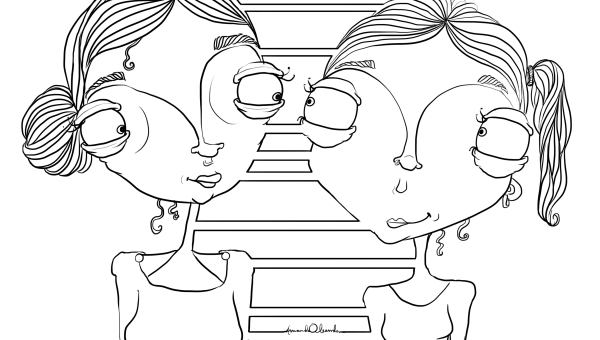Someone posted on Facebook about a book called ADHD Does Not Exist by Richard Saul, an MD in Chicago. He’s been working with ADHD symptoms for the last 30 years and founded the Diagnostic and Developmental Center specializing in Behavioral Neurology. …Aka he appears to be credible.
I was intrigued at this very controversial title so I downloaded his book on my kindle and read it this morning.
He says, let me be clear “the premise of this book is that not a single individual — not even the person who finds it close to impossible to pay attention or sit still — is affected by the disorder called ADHD as we have defined it today.”
Ok, cool. Explain yourself cuz that’s a bold statement.
He proceeds to do so pretty well in my opinion.
He believes that ADHD symptoms are absolutely real and have negative consequences for children, adults, and broader society. Including, but not limited to, challenges in academic, professional, and social settings, and can have lifelong repercussions.
It is imperative that these symptoms are treated, but he believes treating the symptoms as ADHD is using a band-aid approach and ignoring a primary diagnosis which could lead to more effective treatment and better health.
He lists these conditions as mimicking ADHD symptoms:
- vision problems
- sleep disturbance
- mood disorders (bipolar disorder, depression)
- hearing problems
- learning disabilities
- sensory processing disorder
- giftedness
- seizure disorder
- OCD
- tourette’s syndrome
- asperger’s syndrome
- neurochemical Distractibility/Impulsivity
- schizophrenia
- fetal alchohol syndrome
- fragile X syndrome
- other medical conditions (diet, iron deficiency, allergies, hyperthyroidism, pituitary tumor, prematurity, mental poisoning)
I’m very surprised that he didn’t mention trauma. In adults trauma often results in shutting down. But in kids trauma tends to make them fidgety and distracted.
He goes on to explain that many times, it’s not a disorder that needs to be medicated at all. It’s regular life stressors. A child who fidgets a lot but pays attention in class is able to keep up in school and do alright probably doesn’t need medical attention. Similarly, an adult who occasionally loses focus at work or elsewhere but is getting things done reasonably well probably doesn’t need medication either.
On the other hand, kids who are pervasively unfocused and disruptive in all areas of their lives and adults who are losing jobs and can’t keep relationships because of ADHD related symptoms or behavioral challenges need further investigation of their symptoms and development of diagnosis and treatment plan.
What To Do
There are effective steps to take when there’s no diagnosis. Dr Saul suggests:
- Meditate (headspace app is my favorite!)
- Do Yoga
- Keep a better schedule to organize your day
- Write everything down so it’s not taking up space in your working memory
- Improve your diet by eating more nutritious foods. While specific ingredients like sugar don’t have a long-term effect on ADHD, chronically poor diets definitely do.
- Exercise more and aim to combine it with an activity you enjoy and with others
- Practice your passion by doing at least one thing you really enjoy regularly
- Invest in relationships you really care about and avoid or find a better way to be part of stressful relationships.
If you don’t want to take meds yourself or give them to your child, I recommend trying EMDR first. If trauma is part of the cause, the symptoms will decrease. It can’t hurt and is a much healthier alternative to medication if it works. Give me a call today and we can talk about what’s right for you or your child.
This is pretty controversial depending on the group of people you ask, you’ll get very different responses. What do you think?





